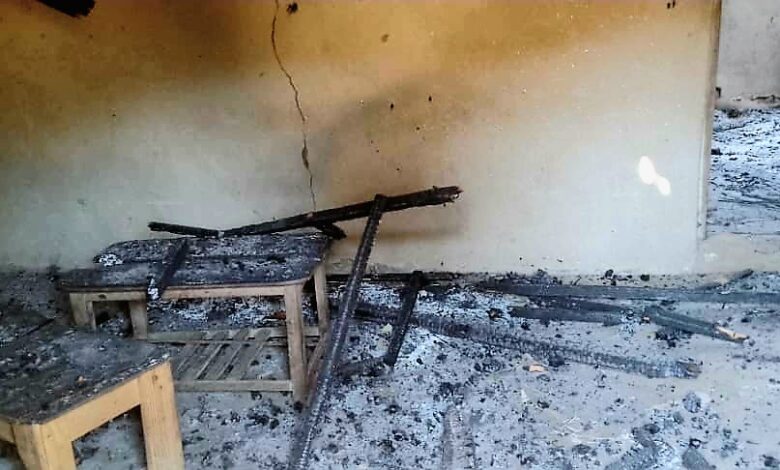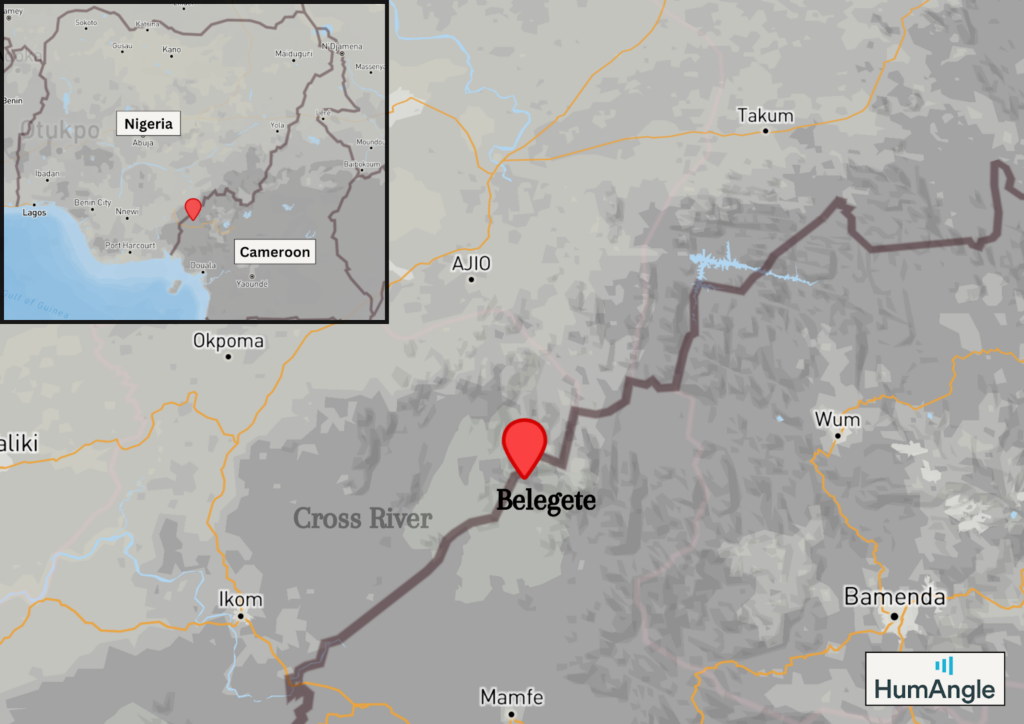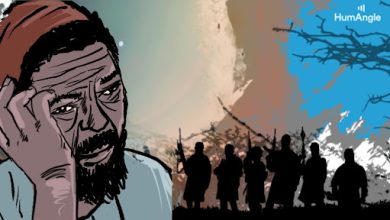Nigerians Attacked By Cameroonian Militants Still Displaced Four Months After
Rebel fighters from Cameroon attacked Belegete, a community in Nigeria’s Cross River state, in December 2023. It's been four months since the deadly incident, but displaced residents still cannot return to their homes.

Sunday Achue has been displaced from Belegete, a community in the Obanlikwu area of South-South Nigeria, since last year following a deadly attack by separatist rebels of the Ambazonia Defence Forces (ADF).
The insurgents, who invaded on Dec. 5, accused the border community of hosting refugees who ran into Nigeria as a result of the repeated clashes between ADF separatists and Cameroonian forces.
They kidnapped Chief Francis Ogweshi, a traditional leader in Belegete, and 20 others after holding the village hostage for 24 hours without the intervention of local security forces.
They wanted Ogweshi to produce Cameroonians seeking refuge in Belegete, including rebels who had deserted. He, however, objected, saying he didn’t know their whereabouts. The militants killed him two days later.
Soldiers who later went to the forest to search for other kidnapped victims killed one of the rebels during an exhcnage of gunfire. In retaliation, ADF fighters stormed Belegete in a midnight raid on Friday, Dec. 8, killing unarmed residents, including a farmer identified as Moses.
They injured many people, burnt several houses and forced the displacement of over a thousand residents, including Sunday’s family. Nearly five months after the incidents, he’s yet to return to the community, as they continue to sleep at the Obudu ranch area.
“We were advised not to return to the community by government representatives because of the porous situation of our borders. They said the state government will inform us when it is safe enough to return to the community because there are chances that the Ambazonia guys may return if we go back in the community,” Sunday explained.
Our reporter learnt that the absence of immigration checkpoints makes it easy for Ambazonian militants to move freely into Nigeria without identification. However, security agents are currently with displaced residents at the Obudu ranch area to ensure they are not ‘re-displaced’ through further attacks.

Hardship
Prior to getting palliative support from the government and private donors in January, displaced residents of Belegete survived on corn and garri. In the absence of these, some were forced to feed on leaves.
Even when children asked for clothes for Christmas and New Year celebrations, the displaced parents were more concerned about food shortages and how long they would continue to live in the cold. However, the state government has given them the go-ahead to move into the uncompleted houses built by former Governor Ben Ayade for Obudu ranch resort host communities.
“We are currently staying in the rooms but our problem now is cold because we only throw nylon on the floor,” Sunday said.

In January, Peter Akpanke, a lawmaker representing Obanliku, Bekwarra, and Obudu Federal Constituency at the National Assembly, donated a few bags of cassava flakes, rice, detergents, salt, and seasonings to the displaced persons.
When it was exhausted, the commissioner for humanitarian affairs and poverty alleviation in the state, Helen Isamoh-Egodo, “came about three weeks ago, and she brought food items including rice, spaghetti, and semo”.
“We are hoping that before it finishes, we will get another from selfless individuals,” Sunday told HumAngle.
Though the quality and sufficiency of the food they prepare daily are not always very good, it is better than feeding on leaves. However, the displaced residents said getting firewood to make food provided to them has been a major concern because the place they currently are lacks bushes and forests.
“The ranch is like a desert, so we have to travel far away to fetch firewood. At times, we go to Otanga and the transportation to the place is ₦1,500 ($1.3),” a woman who identified herself as Veronica said. “Most of us don’t have money, so we have to trek all day in search of firewood.”
Missing people
HumAngle learnt that over 20 young people are still missing months after the invasion. One of the them is Juliet Afah’s husband. The 20-year-old mother of one delivered her child on the ranch and has not seen her husband since last year’s invasion.
“I have not seen my husband since I gave birth on Dec. 11, and no one knows his whereabouts. Thanks to the village people who are helping me to take care of the baby. We don’t know if he was killed or kidnapped. Up till now, we cannot find him,” she said.

Ndah Ferdinand, Belegete community chairman and one of the village’s teachers at Government Primary School, is more concerned about the inability of the displaced children to resume school.
The children were writing their first-term examination when the crisis started, but they cannot continue with their studies even when schools in Cross River resumed for the third term on Monday, April 15.
“We can’t risk returning and putting the lives of these children at risk. We only hope the government assists with maximum security so that we can return safely,” Ndah said.
Cross River police spokesperson Irene Ugbo has yet to respond to HumAngle’s enquiries regarding the law enforcement agents’ efforts to ensure that the displaced residents return to Belegete safely.
Support Our Journalism
There are millions of ordinary people affected by conflict in Africa whose stories are missing in the mainstream media. HumAngle is determined to tell those challenging and under-reported stories, hoping that the people impacted by these conflicts will find the safety and security they deserve.
To ensure that we continue to provide public service coverage, we have a small favour to ask you. We want you to be part of our journalistic endeavour by contributing a token to us.
Your donation will further promote a robust, free, and independent media.
Donate HereStay Closer To The Stories That Matter




